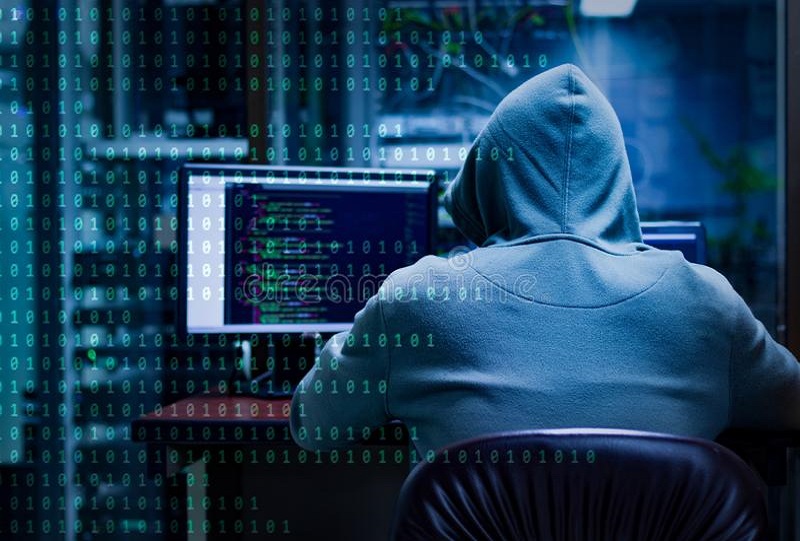About BlindCell & BlindCell Gear
BlindCell Android only
BlindCell is a high security and privacy end-to-end encrypted messaging app running on Android mobile phones and smart devices, which is developed and owned by Experts for Integrated Solutions.
BlindCell uses the Advanced Encryption Standard (AES) algorithm, namely, the AES-256 algorithm to secure SMS messaging. The AES-256 algorithm has a key length of 256 bits, supports the largest bit size and is practically unbreakable by brute force based on current computing power, making it the strongest symmetric encryption standard. Thus, it protects the content of your SMS messages and it can only be disclosed by their destined recipients.
BlindCell Gear iOS & Android
BlindCell Gear is a generic front-end text encryption App running on iOS and Android mobile phones and smart devices, which is developed and owned by Experts for Integrated Solutions.
BlindCell Gear can be used to: (1) Send encrypted SMS messages through your default SMS messaging app; (2) Share encrypted text messages through your social media texting apps (e.g., WhatsApp, Viber, Messenger, Skype, etc.); (3) Share encrypted text messages through your web or private email account on (Gmail, Yahoo, Hotmail, Outlook, etc.); and (4) Encrypt and store text messages on your mobile phone or smart device.
FEATURES

The main features of BlindCell are:
- Flexible text encryption app for iOS & Android mobiles & smart devices).
- Easy to install and use.
- Strong symmetric encryption algorithm.
- Strong symmetric locally determined key.
- Encrypted messages can be sent via the Messages App on your device.
- Encrypted messages can be shared via WhatsApp, Viber, Messenger, etc.
- Encrypted messages can be sent via any Public or Private Webmail Server.
- Auto detect and decrypt encrypted messages.
- High privacy.
- Direct or third-party subscription.
- One-Time subscription.
- Lifetime assets with free update.
- Users can sign-in using BlindCell's Username & Password.
- Fully compatible with BlindCell.
- The only iOS & Android app to allow for text message encryption.

The main features of BlindCell Gear are:
- Complete and comprehensive replacement for the the SMS Messages App on Android devices.
- Easy to install and use.
- Strong symmetric encryption algorithm.
- Strong symmetric locally determined key.
- Used alternatively with the Default SMS Messaging App on your device.
- Plaintext (Unencrypted) & Encrypted SMS Message Exchange.
- Multiple Recepients.
- High privacy.
- Strongly link to the user SIM card.
- Direct or third-party subscription.
- One-time subscription.
- Lifetime assets with free update.
- Users can sign-in using BlindCell Gear Username & Password.
- Fully compatible with BlindCell Gear.
- Untraceable messages.
Who Can Benefit from BlindCell & BlindCell Gear

Government Officials

Military Forces

Security Forces

Intelligence Agencies

Businesses

Banks

Managers & Celebrities

General Public
BlindCell Business
Be a BlindCell Seller
Apply Now - Get Your Promocode - Make Profit
We are looking for worldwide individuals & businesses to be BlindCell & BlindCell Gear Sellers.
We value your efforts for marketing BlindCell & BlindCell Gear with valuable credit and an extra discount for your clients.
Interested individuals & businesses, please apply and verify your email address. Our staff will contact you soon after... Read More
Subscribe for BlindCell & BlindCell Gear
$4.95
$49.95
$119.95
NEWS
The demand for cybersecurity professionals continues to rise along with the rates of attacks and increases in cybersecurity budgets. The imbalance of the amount of skilled cybersecurity workers along with the high demand to fill cybersecurity positions has caused a cybersecurity skills shortage. By 2021, there wil be 3.5 Million unfilled cybersecurity jobs globally. Ref. VARONIS Below are some facts about the cyberurity jobs statistics: 50% of large enterprises (with over 10,000 employees) are spending $1 million or more annually on security, with 43% spending $250,000 to $999,999, and just 7% spending under $250,000. (Cisco) 82% of employers report a shortage of cybersecurity skills. (ISSA) 61% of companies think their cybersecurity applicants aren’t qualified. (ISSA) The cybersecurity unemployment rate is 0% and is projected to remain there through 2021. (CSO Online) It’s predicted that by 2021, 100% of large companies globally will have a CISO position. (Cybersecurity Ventures) By 2021, it’s projected that there will be 3.5 million unfilled cybersecurity jobs globally. (Cybersecurity Ventures) Information Security Analysts job positions in the US are expected to grow 32% from 2018–28. (Bureau of Labor Statistics) Computer Network Architect job positions in the US are expected to grow 5% from 2018–28. (Bureau of Labor Statistics) Computer Programmer job positions in the US are expected to decline 7% from 2018–28. (Bureau of Labor Statistics) Since 2016, the demand for Data Protection Officers (DPOs) has skyrocketed and risen over 700%, due to the GDPR demands. (Reuters) 500,000 Data Protection Officers are employed (IAAP) 66% of cybersecurity professionals struggle to define their career paths (ISSA) 60% of cybersecurity professionals aren’t satisfied with their current job (ISSA) Are you interested in entering the field of cybersecurity? If yes, now is the time as the job field and average salary is only projected to grow.
StegoTime provides an excellent, simple, flexible solution to protect your patient data, while it is stored on your computer, local server, or cloud; or while it is exchanged across the Internet. Simpley, use Stegotime to hide the patient data in an image of your choice (e.g., your patient photo), authroize your patient or any other person who is legally authroized to access this data, and store it or send it to them by email. You can be sure that no one can disclose the data except you, your paient, and those whom you authroized. As a doctor you have an ethical, legal and contractual duty to protect patient confidentiality. Under data protection law, those responsible for patient data are legally obliged to store it securely and protect it from unauthorized or unlawful processing. The General Medical Council (GMC) guidance on confidentiality states that “you must make sure any personal information about patients that you hold or control is effectively protected at all times against improper access, disclosure or loss”. You must make sure that identifiable patient data is not improperly disclosed in any circumstances. An inadvertent breach of patient confidentiality could result in you facing patient complaints or even a trust disciplinary or GMC investigation. Communicating via Mobile Apps NHS guidance for doctors using mobile apps which lack proper security features – such as WhatsApp – advises that “it should never be used for the sending of information in the professional healthcare environment.” The guidance warns that, as a consumer service, WhatsApp “does not have a service level agreement (SLA) with users and has no relevant data security certification” and, as such, should not be used to send patient information or details of clinical cases to colleagues. Data Storage on Portable Devices When used with care, portable storage devices are a valuable and convenient way to store and transfer data. However, since mobile devices are particularly vulnerable to loss or theft, security and best practice should be your first priority. Avoid storing identifiable personal data on personal mobile devices, such as memory sticks, laptops or personal mobile phones, which risk being misplaced or accessed by other people. Familiarise yourself with your trust's information security policy and the name of the person in charge of data security. Always follow trust procedures on the use of mobile devices, laptops and portable data storage. If you are worried about whether you should use a portable storage device at work, talk to your trust information officer for advice. Encryption and password protection of data held on mobile devices would be considered to be standard practice. Make sure you only transfer or store information in line with your trust's information security policies, and take care not to mix professional and personal data. There can be particular dangers where doctors use the same devices for both professional and personal use. Follow relevant GMC and NHS guidance and get to know your legal requirements under data protection law. If you lose any data, report the incident to the nominated senior person in your organisation immediately. They can then take appropriate action and inform patients, if necessary.
There have been an exponential increase in the amount and severityof large-scale, well-publicized data breaches. With data breaches occurring regularly, people have become desensitized to them. This isn’t good, since the protection of data has never been more important. Not only are business required to announce that a data breach has occured, they are also obligated to pay fines due to regulations in accordance with GDPR The seriousness of data breaches has cost some companies their entire business, and the predictions don’t look good: according to reports from Teramind, 231,354 data records are lost or stolen in a 60-minute period. What is a data breach? A data breach is a security incident of unauthorized release of private and sensitive information. The most frequent scenario is when a cybercriminal infiltrates a database and compromises sensitive data, whether it’s just merely that data or copying, transmitting or using it in any way. Data breaches can expose personal information, financial information such as credit card numbers from individuals and corporate secrets, their software codes, customers and even intellectual property, as in the major Sony breach. After a data breach, losses may result from an attacker impersonating someone from the targeted network and his gaining access to otherwise secure networks. If regulatory compliances are violated, the organization suffering the data breach can face legal fines. Why do data breaches happen? Data breaches can happen for a number of reasons; targeted attacks can lead to the compromise of identity, money theft, or it can even happen accidentally. Unfortunately, data breaches are mostly performed by cybercriminals. In a classic example, an attacker gains access to a corporate or organization’s private network where he can steal data from employees, or even go further and steal sensitive data from the organization’s database — containing information about customers, manufacturers, product development secrets, etc. A big issue with these kinds of breaches is that the attack and infiltration into the network can go undetected for long periods of time. Sometimes, they never get detected. Hackers attack every 39 sec, on average 2,244 times a day. Ref. VARONIS Some data breach and hacking statistics are presented below to help quantify the effects of these attacks. Security breaches have increased by 11% since 2018 and 67% since 2014. Hackers attack every 39 seconds, on average 2,244 times a day. The average time to identify a breach in 2019 was 206 days. The average lifecycle of a breach was 314 days (from the breach to containment). 500 million consumers, dating back to 2014, had their information compromised in the Marriott-Starwood data breach made public in 2018. 64% of Americans have never checked to see if they were affected by a data breach. 56% of Americans don’t know what steps to take in the event of a data breach. The average cost of a data breach is $3.92 million as of 2019. 83% of enterprise workloads will move to the cloud by the year 2020. In 2016, 3 billion Yahoo accounts were hacked in one of the biggest breaches of all time. In 2016, Uber reported that hackers stole the information of over 57 million riders and drivers. Uber tried to pay off hackers to delete the stolen data of 57 million users and keep the breach quiet. In 2017, 412 million user accounts were stolen from Friendfinder’s sites. In 2017, 147.9 million consumers were affected by the Equifax Breach. In 2018, Under Armor reported that its “My Fitness Pal” was hacked, affecting 150 million users. 18 Russians, 19 Chinese individuals, 11 Iranians and one North Korean were involved in indictments for their alleged state-sponsored espionage against the United States. 53% of companies had over 1,000 sensitive files open to every employee.










